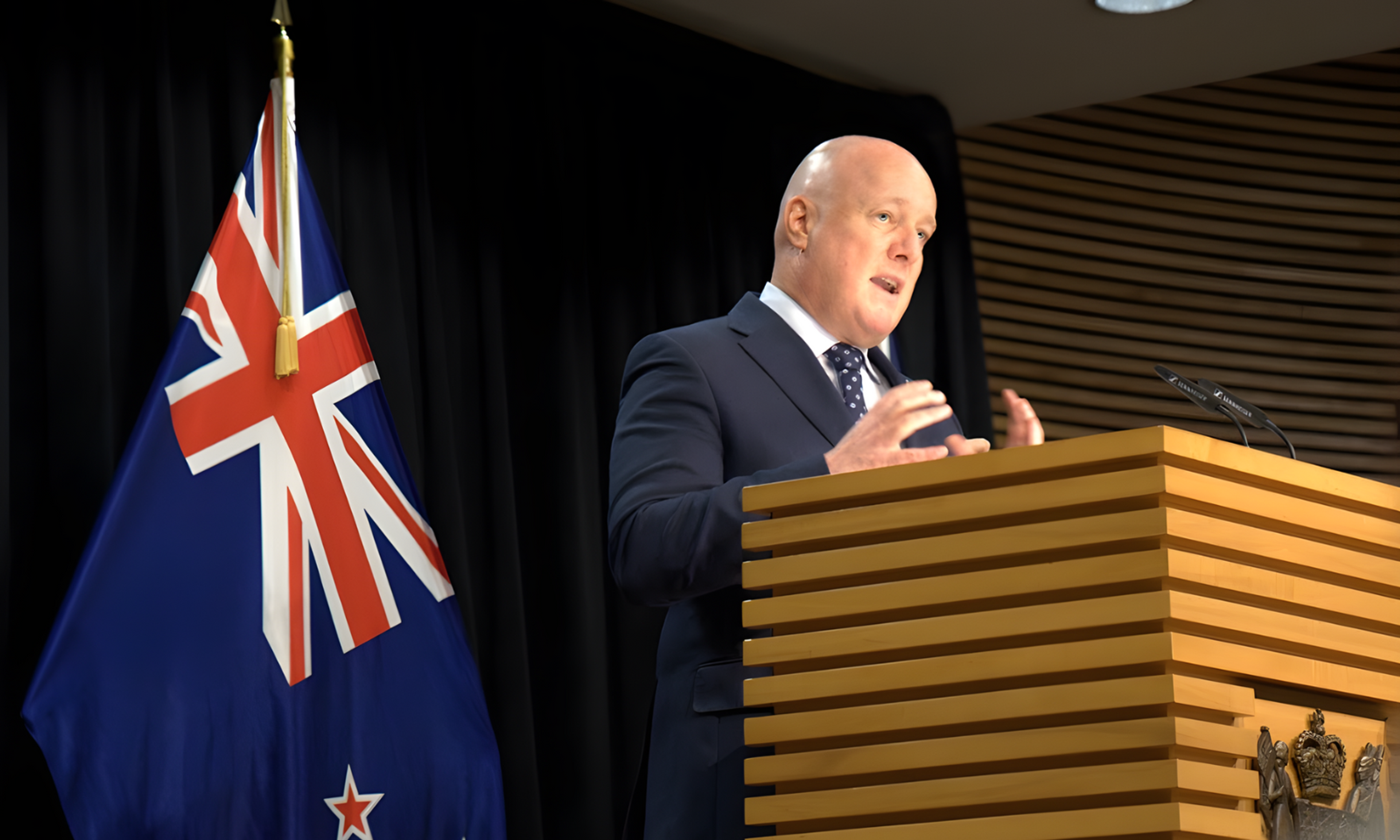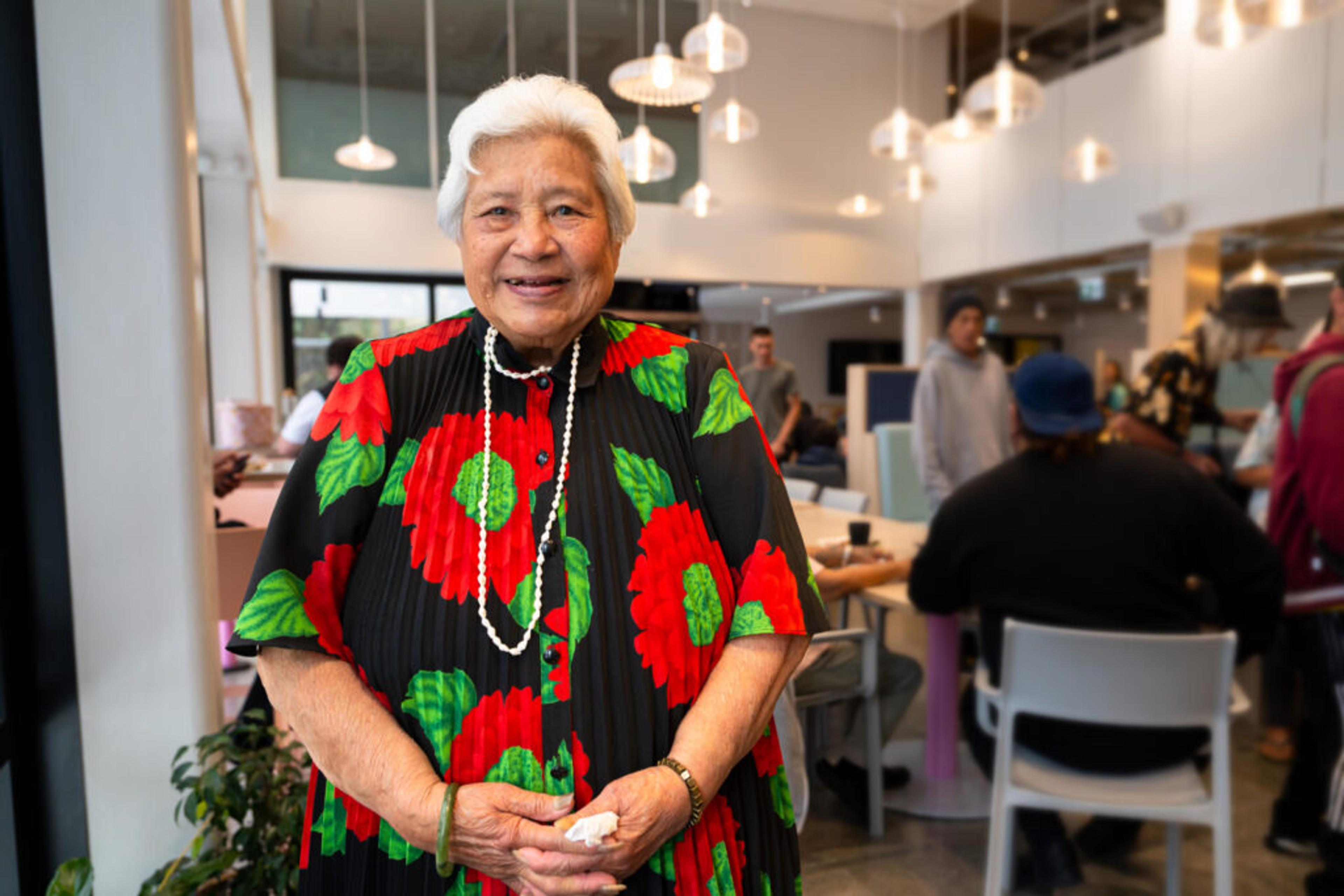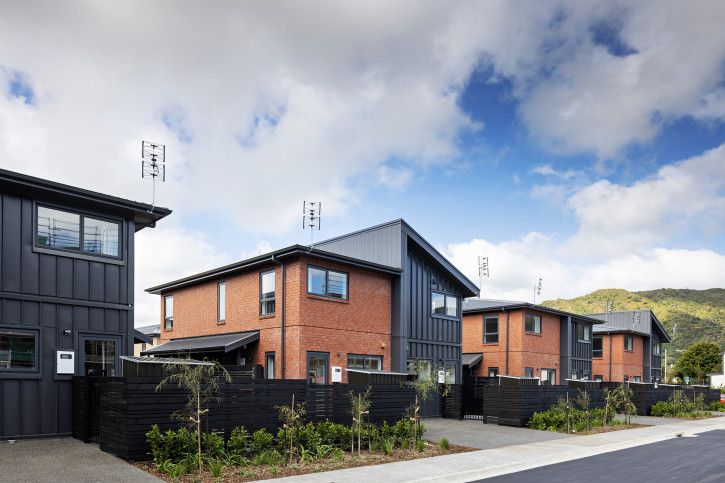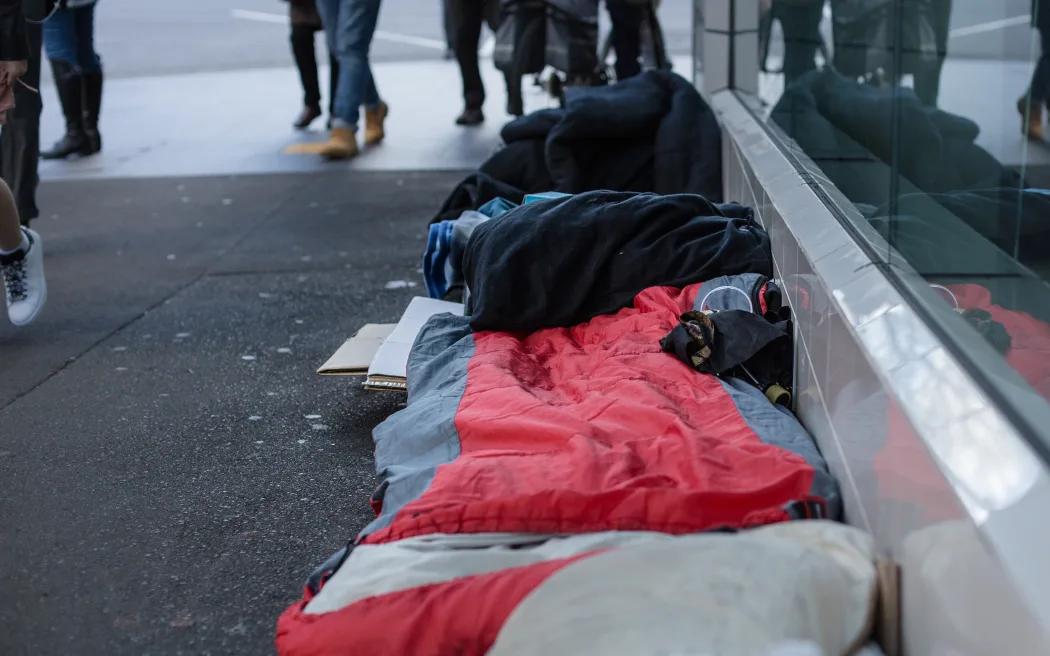

Auckland councillor Angela Dalton, Porirua councillor Moze Galo and Manurewa MP Arena Williams are leading calls for government accountability over public housing policies affecting Pacific families.
Photo/Kainga Ora/Value Your Vote/File
Pacific families bear the brunt of public housing evictions - local leaders
New data shows uneven tenancy enforcement in Manurewa and Porirua, prompting urgent calls to protect vulnerable families.


Luxon rules out merging Ministry for Pacific Peoples this term

First Pasifika councillor on her struggles, pride and facing racism



Luxon rules out merging Ministry for Pacific Peoples this term

First Pasifika councillor on her struggles, pride and facing racism

Pacific families are being kicked out of public housing at disproportionate rates in Manurewa and Porirua, sparking calls for an urgent review of policy.
New tenancy enforcement data show that Pacific families represent less than half of Kāinga tenants in Manurewa, but make up three-quarters of enforcement actions.
Porirua Councillor Moze Galo says the data is “heartbreaking”.
“These aren’t just numbers. These are kids from our schools, our churches, our neighbourhoods. Losing a home affects everything,” Galo says.
“They lose routine, friendships, stability, and the comfort of their own space. In Pacific culture, the home is more than four walls. It’s where we gather, teach values, and pass on identity.
“When families are evicted, it’s not just disruptive, it’s traumatic.”

Kāinga Ora Housing - New figures show Pacific families face disproportionate tenancy enforcement in Manurewa and Porirua. Photo/Kāinga Ora
Local leaders say the system is failing Pacific communities and are calling on the Government and Kāinga Ora to review its approach.
Having worked in social housing at the Ministry of Social Development, Galo said he has seen first-hand how hard Pacific families fight to stay afloat.
In Manurewa, Pacific peoples make up 46 per cent of Kāinga Ora tenants but received 75 per cent of all actions related to unpaid rent between January 2023 and May 2025, including terminations.
Listen to Arena Williams' full interview below.
In Porirua, Pacific tenants represented 46 per cent of tenants but made up 62 per cent of tenancy enforcement, including four of six terminations.
Across both areas, Kāinga Ora issued 45 notices to end tenancies, took 43 cases to the Tribunal, and terminated the tenancies of eight households for non-payment of rent.
Six of those terminations involved Pacific families. In total, 20 children lost their homes, and more than 80 were affected by tenancy action, according to the data.
Kāinga Ora defended its policies, saying evictions are a last resort.
The organisation confirmed it has conducted no internal review of how its rent enforcement policies affect Pacific tenants.

Rising tenancy enforcement in public housing is leaving more Pacific families at risk of homelessness. Photo/File
"The system isn’t fair"
Galo says some families feel embarrassed to ask for help, and many are confused by the process.
Families are trying to survive on low incomes, dealing with language barriers, cultural commitments and rising living costs, he says.
“This isn’t just a housing issue. For our Pacific communities, it’s part of a bigger story of inequality and struggle."
Government: “That’s the expectation”
Housing Minister Chris Bishop confirmed the government had directed Kāinga Ora to take a tougher line on tenants with rent arrears or antisocial behaviour.
“That’s been a clear expectation that this government has set right from the start, and the stats show that Kāinga Ora has responded to that expectation,” Bishop said.

Homelessness is rising in Auckland, with leaders warning more Pacific youth are sleeping rough as families lose public housing. Photo: RNZ / Luke McPake
Bishop had not reviewed the ethnic breakdown, but a follow-up request for comment has been sent.
Manurewa MP Arena Williams says the tenancy figures reflect the human cost of government policy.
“We’re seeing children kicked out of homes, and we don’t know where they’ve gone because the government doesn’t take that data.”
Williams said homelessness is rising in Manurewa, with local churches and social organisations reporting more Pacific youth sleeping rough.
She said the figures show a stark lack of fairness in the way public housing policies are being applied.
“Why aren’t Kāinga Ora dealing with Pacific families in a way which is open to communication, open to being able to negotiate what’s going on in the household?”

Housing Minister Chris Bishop says the government ordered a tougher stance on rent debt and antisocial behaviour, but has yet to review the ethnic impact. Photo/file.
Kāinga Ora defends its policy
Kāinga Ora national services manager Nick Maling says only a small number of tenancies had been ended in Manurewa and Porirua since the agency introduced a new rent debt approach in February 2025.
“Since then, we have ended a small number of tenancies (eight) in Manurewa and Porirua. This does not reflect the significant work our teams have done to help tenants get back on track with their rent payments,” Maling said.
Since February, Kāinga Ora has reduced rent debt for 179 tenancies across the two regions, including 101 Pacific households, he said.
“Our frontline teams work hard to support all tenants to resolve tenancy issues, and we apply our policies in a fair and consistent way in communities around the country.”
He said engaging respectfully with Pacific tenants was a priority, and households are supported with practical guidance.
“We do not take the decision to end a tenancy lightly – especially when there are children or young people involved,” he said. “We make every effort to help tenants resolve tenancy issues so they can remain in their homes."
If they do not address the issues, despite repeated efforts, Kāinga Ora will apply to end the tenancy as a last resort, he said.
“If this happens, Kāinga Ora makes every effort to connect the tenant with appropriate housing options.”
Maling said the low number of tenancy terminations in Manurewa and Porirua meant small changes could result in large swings in percentage figures.

Stable housing is critical to Pacific wellbeing. Photo/MPP
“We will not turn our back on them”
Auckland councillor Angela Dalton, who chairs the Community Committee, said she found Kāinga Ora’s response “clinical, cold and dismissive.”
“Do Kāinga Ora or MSD provide wraparound services like budgeting and social justice support to these families, who I am sure are working multiple jobs to make ends meet?”
Dalton emphasised Auckland’s 90 per cent rise in homelessness since 2024 and noted that Pacific and Māori women face additional discrimination when seeking housing.
Equity review called for
Galo has called for a formal equity review into Kāinga Ora’s rent enforcement policies, urging that Pacific experts and families be at the centre of the process.
“We need to dig deeper and understand why this is happening. But the review needs to be done with our people, not just about us.”
LDR is local body journalism co-funded by RNZ and NZ On Air.